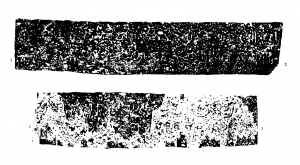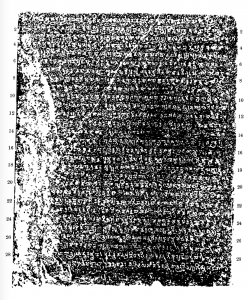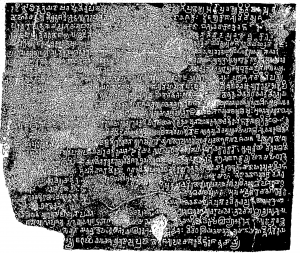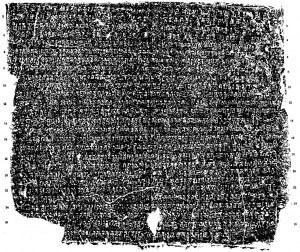OB00168 Shrine Image in Ajanta Cave 4
OB00167 Verandah of Ajanta Cave 17
OB00165 Verandah of Ajanta Cave 16
IN00181 Ajanta Cave 4 Image Inscription

IN00180 Ajanta Cave 17 Inscription of Ravisamba

This stone inscription, inscribed on the side wall of the outside veranda of cave 17, is much damaged by exposure, which according to Shastri (1997: 46), has lead the correct decipherment of the inscription to be very problematic. The inscription starts with a dedication to the Buddha, unusual as many of the Vākāṭaka period inscriptions and charters are dedicated to Hindu gods. The inscription was carved to record the creation of Buddhist stupas and institutions by a ruler called Dharādhipa and with the wish for the longevity of these structures. The inscription was carved under the name of Ravisāmba, a vassal of the Vākāṭaka king Hariṣeṇa. The inscription also includes a genealogy for Dharādhipa and Ravisāmba.
IN00178 Ajanta Cave 16 Inscription of Varahadeva


This stone inscription, in cave 16 at Ajaṇṭā, was first published in 1862 by Dr. Bhau Daji. As with the other stone inscription in cave 17 at Ajaṇṭā, this inscription has been damaged by exposure to weather. The inscription was written for Varāhadeva, a minister of the Vākāṭaka king, Hariṣeṇa. The inscription records the excavation and decoration of a cave dwelling, which both Mirashi (1963: 104) and Shastri (1997: 42) believe refers to the creation of cave 16 itself, where the inscription is found at Ajaṇṭā. The donation was made to an order of Buddhist monks.
